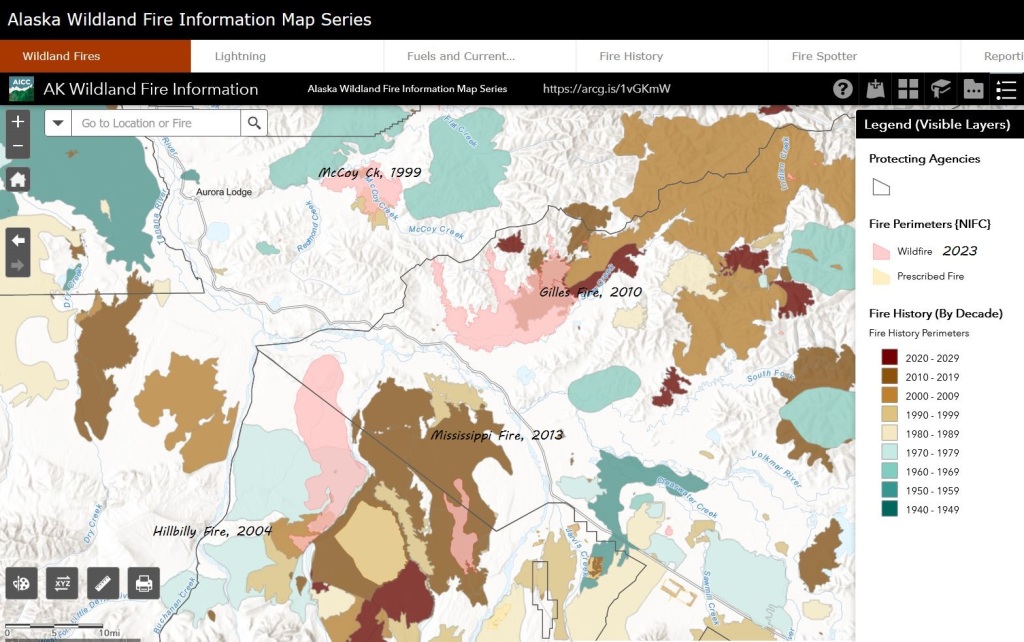Can’t help but notice with this year’s fires in interior Alaska, some burned readily into recent (<20 year old) burn scars, like the Delta fire, Hillbilly and Ponds fires southeast of Fairbanks (figure). Fires to the southwest (Clear Ck and Rock Ck) are re-burning 1950’s and 1960’s burn scars but more recent burn perimeters seem to be working as fuel breaks. Fire management agencies in Alaska have traditionally relied on burn scars to act as fuel breaks, stopping or significantly moderating fire spread, for up to 50 years post-fire (Cronan and Jandt, 2008). In the 21st century, however, the phenomenon of early fire re-entry into old burns is becoming more common (Barnes 2017, Buma 2022).

While a student at UAF, Rafael Rodriguez (forestry technician with the State of Alaska in Fairbanks) showed a strong correlation between the number of times an area had burned between 1940-2010 with mean July temperature (Rodriguez 2014). In 2023, late July and August brought ideal weather for late season wildfires to the interior. Burning still exerts a strong negative feedback on re-burning within 10 years of a fire, and overall only about 4% of burned area in Alaska has burned more than once in the last 30 years (Buma, et al. 2023). Still the phenomenon of early fire re-entry, driven both by warming climate/drying fuels and by forest conversion to grassland or scrub, is very impactful for fire management decisions and agencies are carefully monitoring the trend.
References:
Cronan, J.B. and R.R. Jandt. 2008. How succession affects fire behavior in boreal black spruce forest of interior Alaska. BLM-Alaska Technical Report 59. Anchorage, Alaska: USDI Bureau of Land Management. 15 pp.
Barnes, Jennifer (2017 Presentation) What is Fueling Repeat Fires? Shortened Fire Return Intervals in Copper River Basin and Denali
Buma, Brian. 2022. GRIN: Evaluating flammability of reburns in the boreal forests of Interior Alaska – Final Report to the Joint Fire Science Program. JFSP Project ID: 19-1-01-43. University of Colorado Denver. 23 p.
Rodriguez, Rafael. 2014. Does mean summer temperature influence fire return intervals and area burned in Alaskan boreal forests? 2014 Research Days. Fairbanks, AK: University of Alaska Fairbanks.
